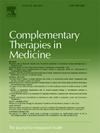针刺治疗脑卒中后抑郁的有效性和安全性:系统综述
IF 3.5
3区 医学
Q1 INTEGRATIVE & COMPLEMENTARY MEDICINE
引用次数: 0
摘要
背景近年来,有关针灸治疗中风后抑郁(PSD)的研究显著增加,但研究结果仍不一致。很少有研究人员对这一领域的系统综述(SR)进行全面评估。目的通过系统综述对针灸治疗 PSD 的有效性和安全性的证据进行评估和综合,为临床实践提供有价值的见解,并指导未来的研究方向。方法我们检索了 PubMed、Embase、Web of Science、Cochrane Library、CNKI、SinoMed、万方、VIP 和 Google Scholar 数据库中的相关文献。检索涵盖了从数据库建立之初到 2024 年 9 月 10 日期间的出版物。文献选择和数据提取由两名审稿人独立完成。采用 AMSTAR 2、ROBIS 和 GRADE 工具对纳入的 SR 的方法学质量、偏倚风险和证据水平进行评估。计算校正覆盖面积(CCA)以评估原始研究的重叠情况。对纳入的SR数据进行定量或描述性分析。使用 AMSTAR 2 进行评估后,1 篇 SR 被评为中等质量,2 篇为低质量,35 篇为极低质量。根据 ROBIS,21 篇 SR 被归类为总体偏倚风险高,17 篇为低风险。针灸有可能改善 PSD 患者的抑郁症状、中风相关症状和日常生活活动,但证据质量有限。一些研究表明,针灸可能对认知功能、生物标志物、睡眠质量和中医综合征有影响,但这些发现需要更高质量的研究进一步验证。结论 针灸具有治疗 PSD 的潜力,但还需要更多高质量的研究来确定其有效性和安全性。目前,大多数系统综述在方案预注册、排除研究的记录和资金来源披露方面存在缺陷,导致系统综述质量不高。目前的证据表明,该疗法可能对抑郁症状、中风相关症状、日常生活活动、认知功能、生物标志物、睡眠质量和中医综合征有益处,但鉴于研究质量的局限性,应谨慎解读这些研究结果。针灸治疗 PSD 的有效性和安全性需要进一步的高质量研究来证实。本文章由计算机程序翻译,如有差异,请以英文原文为准。
The effectiveness and safety of acupuncture for post-stroke depression: An overview of systematic reviews
Background
In recent years, research on acupuncture for post-stroke depression (PSD) has grown significantly, yet findings remain inconsistent. Few researchers have conducted comprehensive assessments of systematic reviews (SRs) in this area. Consequently, there is a need for a thorough and objective synthesis of clinical evidence regarding acupuncture's effectiveness in treating PSD.
Objective
To evaluate and synthesize evidence on the efficacy and safety of acupuncture for PSD through systematic reviews, offering valuable insights for clinical practice and guiding future research directions.
Methods
We searched PubMed, Embase, Web of Science, Cochrane Library, CNKI, SinoMed, Wanfang, VIP and Google Scholar databases for relevant literature. The search covered publications from database inception to September 10, 2024. Literature selection and data extraction were independently performed by two reviewers. The methodological quality, bias risk, and evidence level of included SRs were assessed using AMSTAR 2, ROBIS, and GRADE tools. The corrected covered area (CCA) was calculated to assess overlap in original studies. Data from included SRs were subjected to quantitative or descriptive analysis.
Results
A total of 38 SRs on acupuncture for PSD were included. After assessment using AMSTAR 2, one SR was rated as moderate quality, two as low quality, and 35 as very low quality. According to ROBIS, 21 SRs were classified as high risk of overall bias, and 17 as low risk. Acupuncture showed potential to improve depressive symptoms, stroke-related symptoms, and activities of daily living in PSD patients, though the quality of evidence is limited. Some studies suggested possible effects on cognitive function, biomarkers, sleep quality, and Traditional Chinese Medicine syndromes, but these findings require further validation with higher-quality research. While no serious adverse effects were reported in the reviewed studies, more rigorous safety evaluations are needed before definitive conclusions about acupuncture's safety for PSD can be made.
Conclusion
Acupuncture shows potential as a treatment for PSD, though more high-quality research is needed to establish its effectiveness and safety. Currently, the majority of systematic reviews exhibit deficiencies in protocol pre-registration, documentation of excluded studies, and disclosure of funding sources, resulting in systematic reviews of suboptimal quality. Current evidence suggests possible benefits for depressive symptoms, stroke-related symptoms, activities of daily living, cognitive function, biomarkers, sleep quality, and TCM syndromes, but these findings should be interpreted cautiously given the limitations in study quality. Further high-quality studies are needed to confirm the efficacy and safety of acupuncture for PSD.
求助全文
通过发布文献求助,成功后即可免费获取论文全文。
去求助
来源期刊

Complementary therapies in medicine
医学-全科医学与补充医学
CiteScore
8.60
自引率
2.80%
发文量
101
审稿时长
112 days
期刊介绍:
Complementary Therapies in Medicine is an international, peer-reviewed journal that has considerable appeal to anyone who seeks objective and critical information on complementary therapies or who wishes to deepen their understanding of these approaches. It will be of particular interest to healthcare practitioners including family practitioners, complementary therapists, nurses, and physiotherapists; to academics including social scientists and CAM researchers; to healthcare managers; and to patients. Complementary Therapies in Medicine aims to publish valid, relevant and rigorous research and serious discussion articles with the main purpose of improving healthcare.
 求助内容:
求助内容: 应助结果提醒方式:
应助结果提醒方式:


